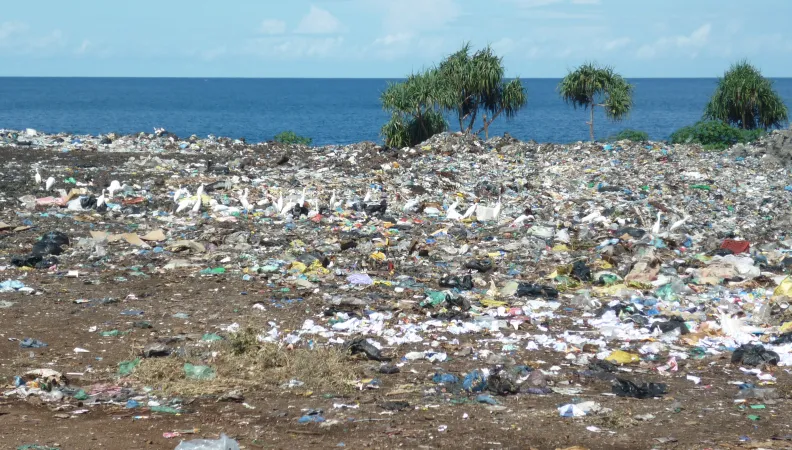Share the page
“The Plast’ile project aims to have a global impact for ecosystems and populations alike”: interview with Sylvain Petit
Published on

Supported by the SMILO NGO and signed-off by the FFEM during the IUCN’s World Conservation Congress in September 2021, the goal of the Plast’ile project is to put in place sustainable management of plastic waste in Kerkennah, Tunisia. To mark the Mediterranean Worlds Forum we revisit this innovative solution with Sylvain Petit, Executive Secretary of SMILO.
Sylvain Petit, Executive Secretary of the Small Islands Organisation (SMILO) NGO
What are the main issues around plastic pollution in the Mediterranean, and in the Kerkennah islands?
Worryingly, the Mediterranean is known to be one of the most polluted seas on Earth. We’ve hit record levels of microplastic concentration, at 1.25 million fragments per square kilometre - that’s in addition to larger plastic wastes. This is due to high population density, poor waste management, increased tourism and more maritime traffic. Its near-landlocked location compounds the issue, as the water is refreshed quite slowly. While the Mediterranean is a global biodiversity hotspot, plastic pollution is threatening both marine ecosystems and human health, particularly via food.
Our NGO, the Small Islands Organisation (SMILO), is focusing efforts on island regions which are particularly vulnerable to the impacts of plastic pollution and global warming. That’s the case for the Kerkennah archipelago in Tunisia, where 600 tonnes of waste - primarily from fishing - is thrown into the sea every year, representing a challenge of the highest order.
How does the Plast’ile project combat plastic pollution?
To encourage an effective transition, the Plast’ile project is concentrating on one of the main causes of plastic pollution in Kerkennah: fishers dumping plastic fishing traps into the sea. These low-cost plastic traps have displaced their date palm predecessors, but they break easily and so - thanks to poor waste management - are just abandoned. Supported by the FFEM, our initiative relies on an innovative solution invented by Earthwake which transforms used plastics into fuel via a pyrolysis system, the Chrysalis 40. A pragmatic trade-off was put in place by encouraging fishers to return their used traps to a collection point and be rewarded with fuel in return. The goal is to have a global impact on the quality of life for all the island populations. The Plast’ile project protects Kerkennah’s unique biodiversity while proactively addressing local socio-economic realities.
In what ways is this project particularly innovative?
The Plast’ile project innovates primarily through the technical solution it offers for better managing plastic wastes. Pyrolysis isn’t new, but the Chrysalis 40 is the only low-tech system mobile enough to be transported into areas that can be difficult to access. In addition, it’s easy to use and requires only minimal technical assistance from Earthwake once the local workforce have been trained.
It’s also innovative because the Plast’ile project’s governance fosters dialogue between those involved, from the public and private spheres as well as civil society. Since 2019, Kerkennah has had its own island committee who plan the archipelago’s sustainable development. Setting up the committee was the first stage in obtaining SMILO’s “Sustainable Island” accreditation, awarded to Kerkennah in 2020, and we see this very much as the cornerstone for this positive dynamic. In a sometimes challenging context, it is vital to be able to depend on a willing council and local associations. An essential force for facilitation and awareness-raising, they represent a staging post on the ground and a megaphone for our actions.
Do you think it will be possible to extend the lessons learned from this pilot site to other parts of the Mediterranean, and beyond?
Replicability lies at the heart of our mission and this project. We focus our efforts on island regions because they offer fertile ground for innovation - whether technical, economic or social. It’s the first time that such a device is operating in a far-off location, and under difficult conditions, where the population was untrained. We’ll now be able to extend this solution elsewhere, to other islands, within SMILO, or on the continent.
